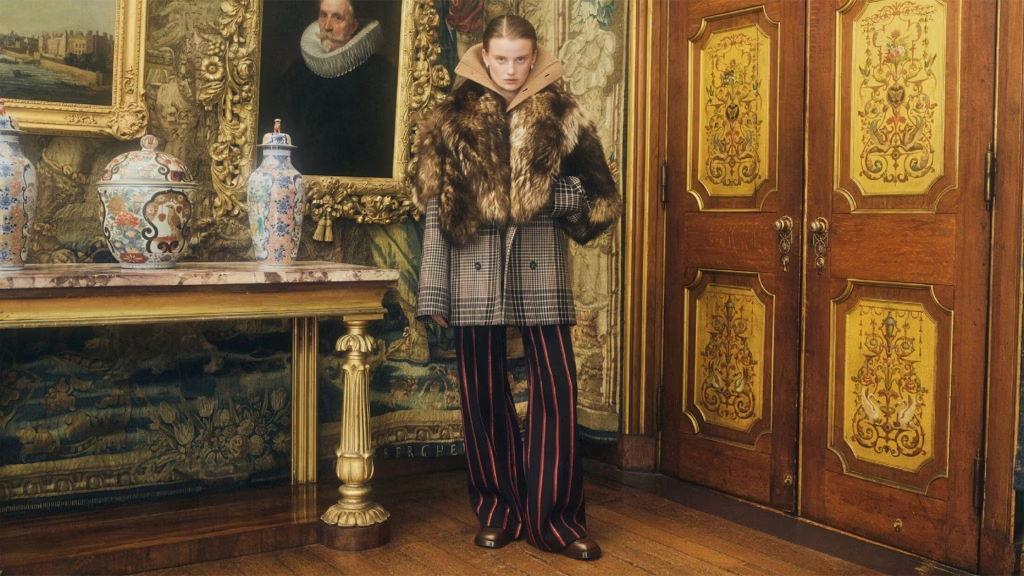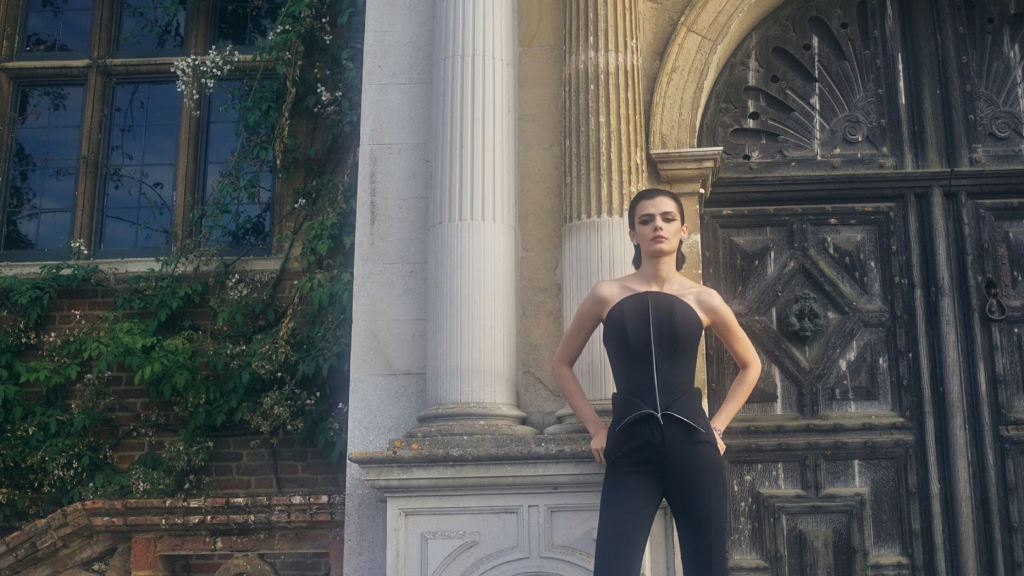Introduction
Alexander McQueen is a globally renowned British luxury fashion brand celebrated for its boundary-pushing designs, exquisite craftsmanship, and dramatic runway shows. Established in 1992 by visionary designer Lee Alexander McQueen, the brand has become synonymous with innovation and rebellious creativity. From intricately tailored pieces to avant-garde collections, Alexander McQueen continuously challenges traditional notions of fashion while honoring the art of storytelling through its designs.

Brand Story: The Growth Journey
The Early Years Alexander McQueen, born in London in 1969, showed an early aptitude for tailoring. After completing an apprenticeship on Savile Row, he pursued formal training at the prestigious Central Saint Martins College of Art and Design, graduating in 1992. His graduation collection, which was bought in its entirety by influential fashion editor Isabella Blow, catapulted him into the spotlight.
Rise to Fame In 1996, McQueen succeeded John Galliano as the creative director of Givenchy, a position that further honed his design skills and brought him international acclaim. While working at Givenchy, McQueen simultaneously developed his eponymous brand, where he fully unleashed his creativity. His early collections were known for their theatricality, with shows featuring controversial themes and groundbreaking innovations such as bumster trousers and holographic projections.
Expansion and Influence The brand grew exponentially under McQueen’s leadership, earning four British Designer of the Year awards. In 2001, the Gucci Group (now Kering) acquired a majority stake in the company, providing the resources to expand globally. Boutiques opened in major fashion capitals, and new product lines, including menswear, accessories, and fragrances, were introduced.
Continuing the Legacy Following McQueen’s tragic death in 2010, his longtime collaborator Sarah Burton took over as creative director. Burton has successfully upheld McQueen’s legacy, maintaining the brand’s distinctive identity while introducing a softer, more romantic edge. Notable moments under Burton’s leadership include designing the wedding dress for Catherine, Duchess of Cambridge, in 2011, which showcased the brand’s unparalleled craftsmanship.
Why Is Alexander McQueen Popular?
- Innovative Designs: McQueen’s collections often blend the macabre with the beautiful, resulting in strikingly unique pieces that resonate with audiences worldwide.
- Theatrical Runway Shows: The brand’s runway presentations are legendary, incorporating cutting-edge technology, storytelling, and dramatic performances.
- Craftsmanship: Rooted in McQueen’s Savile Row training, the brand’s attention to detail and precision tailoring set it apart in the luxury market.
- Cultural Relevance: From celebrity endorsements to museum exhibitions, Alexander McQueen consistently influences and reflects broader cultural movements.
- Sustainability Efforts: The brand has increasingly prioritized sustainability, using innovative materials and ethical practices to align with modern consumer values.
Key Features of Alexander McQueen
| Feature | Description |
|---|---|
| Design Philosophy | Fusion of romanticism and rebellion with storytelling at its core. |
| Craftsmanship | Precision tailoring and intricate detailing rooted in traditional techniques. |
| Signature Pieces | Bumster trousers, skull motifs, and exaggerated silhouettes. |
| Runway Innovation | Pioneered theatrical elements and technology in fashion shows. |
| Sustainability | Commitment to eco-friendly materials and production methods. |
Inspirational Thinking Behind the Brand
Alexander McQueen draws inspiration from a wide range of sources, including history, nature, and art. The brand often incorporates dark and Gothic elements, reflecting McQueen’s fascination with life’s dualities. Collections explore themes like fragility, strength, and the human condition, resonating deeply with audiences on an emotional level.

The brand’s designs also celebrate individuality and self-expression, encouraging wearers to embrace their uniqueness. By blending traditional craftsmanship with cutting-edge innovation, Alexander McQueen challenges conventional fashion norms, inspiring both creators and consumers to think beyond the ordinary.
In essence, Alexander McQueen remains a beacon of creativity, continuously evolving while staying true to its roots. It is not just a brand but a testament to the power of art, emotion, and innovation in fashion.



